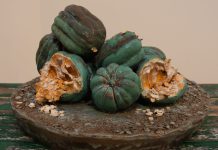A day in the life of a typical Japanese student who makes his
home in one of Gilroy’s sister cities: Takko-Machi
Story by Sarah Bryson, Special to the Dispatch
Naotake Mikami is like most high school students. He rides the bus to school, plays sports and listens to music. But Mikami doesn’t attend any local high schools. He lives in Japan, and Gilroy High School students will soon have the pleasure of meeting Mikami, a Japanese exchange student from Gilroy’s sister city in Japan.
“I like to learn about America,” he said. So now, he has decided to live here for a year and could be arriving at the end of summer, though his adventure may be stalled until 2007. Nevertheless, he is thrilled about his opportunity.
Takko-Machi became Gilroy’s sister city in 1988 because of garlic. As if being the top producer of garlic in Japan isn’t enough, this town of only 7,000 people amicably pursues a relationship with Gilroy year after year. Mikami has been a resident of the small town his entire life, so feels naturally drawn to Gilroy. He says, “Gilroy is a nice place; I want to live there.”
In October of 2003, he came to visit as part of a group of Takko-Machi Junior High students and felt his stay was too short.
In Japan, Mikami attends a private, Catholic high school an hour away from Takko-Machi. The bus ride is a bit long, but worth it for him since Catholic schools throughout Japan are known for their strong English curriculum. After heading for the bus stop at 6:30am, Mikami throws on some headphones for the long ride, his selections of music ranging from Japanese punk to American classic rock. Among his English-speaking favorites are “Green Day” and “The Beatles.”
One may be very surprised to find out how popular American culture is in Japan. Even in Mikami’s small, rural environment, a low hum of America emanates from beneath the streets and behind the walls. Japan’s connection to America isn’t limited, however, to music, fashion trends, and pop-culture – English is studied by every junior high and high school student, like Mikami. Of course the prevalence of English is not only for relations with America, but is a very practical resource for making connections with any country.
Mikami realizes the importance of English and expresses a genuine love for understanding our language.
“English is very interesting,” he says. His first class is an English Lab that consists of listening to music, conversational tapes, and watching movies – all in English. The class will sometimes discuss their experience and answer questions. Two other English classes, reading and grammar, appear in throughout his week. In these classes, he reads short stories translated, or originally, in English. Then, they discuss the story, answer questions, and write essays. To mix it up, they sometimes do crossword puzzles and play games.
Much like for a student in America, History, Math, Science, physical education, and other classes fill up the rest of his days.
Just like some American kids, he says, “my history teacher is boring.” And, he couldn’t explain, but there is just something about his grammar teacher that gets under his skin.
Lunchtime too for Mikami represents the much-desired social break that every high school student longs for, no matter where they live. And, as the clock ticks through the bell, each social-click finds its designated niche of campus. For Mikami and about nine other boys, the escape route leads directly into the locker rooms where they exchange rousing tales of encounters with girls.
“We also read comics and listen to music,” he said. They converse on the usual subjects: teachers, books, movies, jokes and peers. But, perhaps fairly unusual is the presence of English – the group sometimes shares new phrases and expressions they learned that day.
And, what does he eat for lunch? Well, the usual for any Japanese high school student’s – “Obento” or lunchbox. In Mikami’s lunchbox is a handmade meal prepared by his mother or grandpa. Today, he has eggs that have been cooked and rolled up with vegetables and sauce. Then, he has sauteed vegetables, seaweed salad, fried chicken, and of course, rice. He doesn’t have anything to drink with this lunch, which is very normal – many Japanese don’t drink with their meals.
He has to make sure to fill up too because he has a lot more to do before dinner.
Mikami is a very active young man who is not only cultured and intelligent, but athletic as well. He plays baseball after school with the school club. Although, there’s a boy’s baseball team and a girl’s softball team in the club, they all practice together. Naotake says sometimes they use softballs and sometimes baseballs. This may seem difficult, and a little confusing, but Naotake claims, “It works very well; it’s a lot of fun!” He seems to enjoy the coed environment. He also enjoys basketball and skiing (common in Takko-Machi this time of year).
Mikami also participates in student government as the facilitator of the meetings. He also makes announcements over the loud speaker to the entire student body. Not only is he a leader, but a worker. As a member of a club called “Telegia,” he finds himself volunteering in the community. Usually, this means going to play with sick or injured children at the local hospital. At the hospital, he and his group also will occasionally clean and wash dishes.
At the end of the day, the tired student hops back on the bus and, once again, switches his music on for the ride.
“I love music – it makes me relax,” he says.
And, when he arrives home, he sits down to the meal his grandfather has prepared. Today, he is eating later than the rest of his family, but that doesn’t stop them from talking. Now, joined by his younger sister, Orie, Mikami sits down for some good-old Japanese comedy. Sometimes, they watch “Full House,” a Japanese drama, or the Educational Channel. Then, it’s between about two hours of homework before Mikami finally settles into bed for a good night sleep.
*Editor’s Note: Sarah Bryson is Gilroy’s Sister City ambassador to Takko-Machi, Japan.














